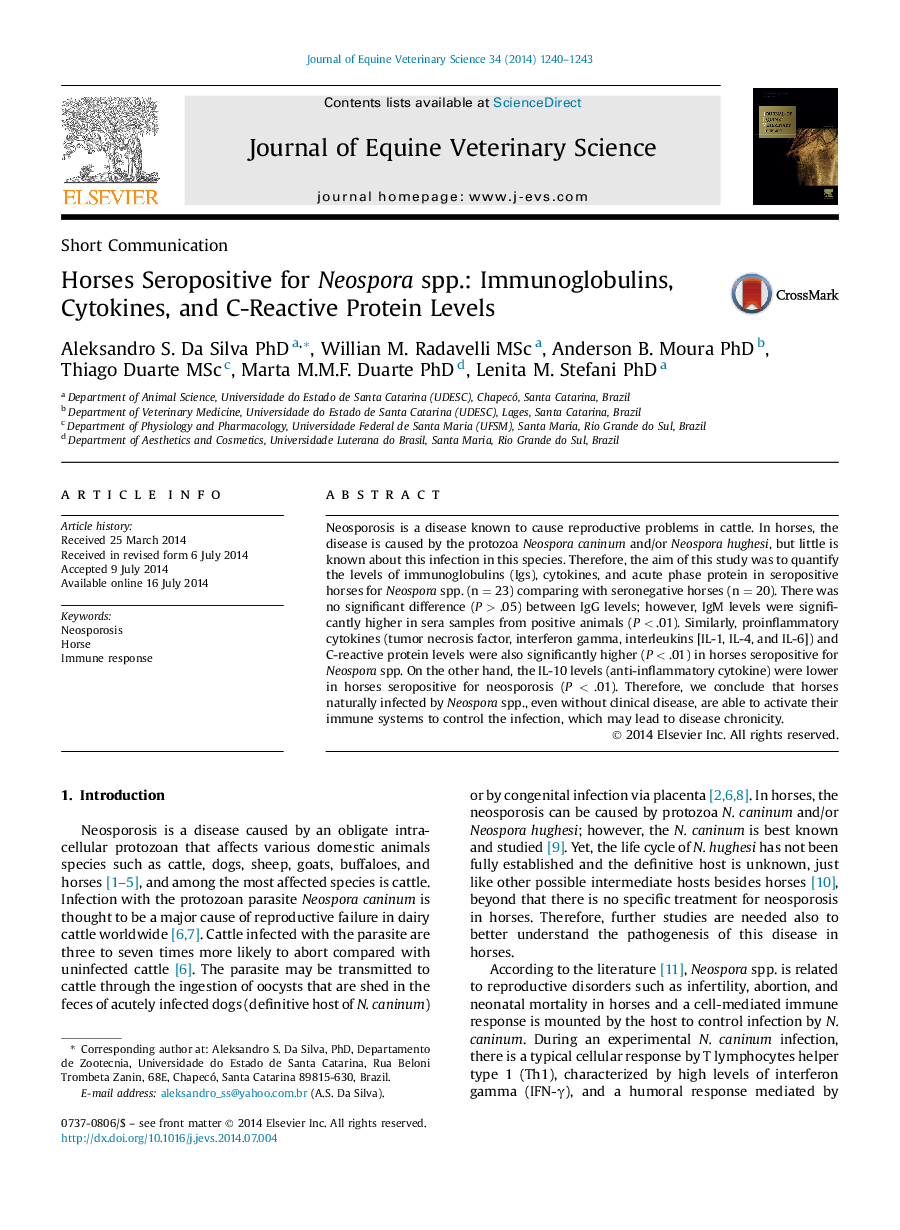| Article ID | Journal | Published Year | Pages | File Type |
|---|---|---|---|---|
| 10961348 | Journal of Equine Veterinary Science | 2014 | 4 Pages |
Abstract
Neosporosis is a disease known to cause reproductive problems in cattle. In horses, the disease is caused by the protozoa Neospora caninum and/or Neospora hughesi, but little is known about this infection in this species. Therefore, the aim of this study was to quantify the levels of immunoglobulins (Igs), cytokines, and acute phase protein in seropositive horses for Neospora spp. (n = 23) comparing with seronegative horses (n = 20). There was no significant difference (P > .05) between IgG levels; however, IgM levels were significantly higher in sera samples from positive animals (P < .01). Similarly, proinflammatory cytokines (tumor necrosis factor, interferon gamma, interleukins [IL-1, IL-4, and IL-6]) and C-reactive protein levels were also significantly higher (P < .01) in horses seropositive for Neospora spp. On the other hand, the IL-10 levels (anti-inflammatory cytokine) were lower in horses seropositive for neosporosis (P < .01). Therefore, we conclude that horses naturally infected by Neospora spp., even without clinical disease, are able to activate their immune systems to control the infection, which may lead to disease chronicity.
Keywords
Related Topics
Life Sciences
Agricultural and Biological Sciences
Animal Science and Zoology
Authors
Aleksandro S. PhD, Willian M. MSc, Anderson B. PhD, Thiago MSc, Marta M.M.F. PhD, Lenita M. PhD,
